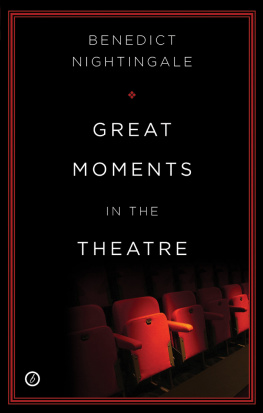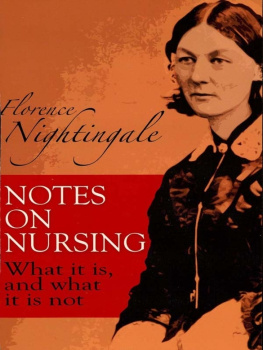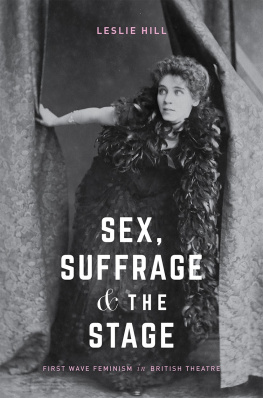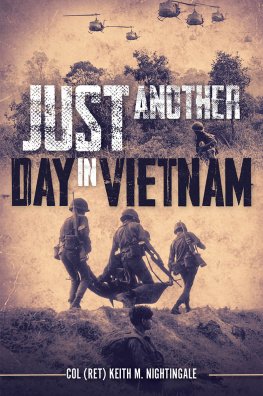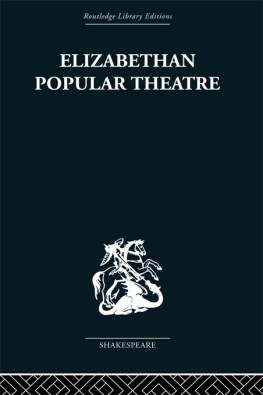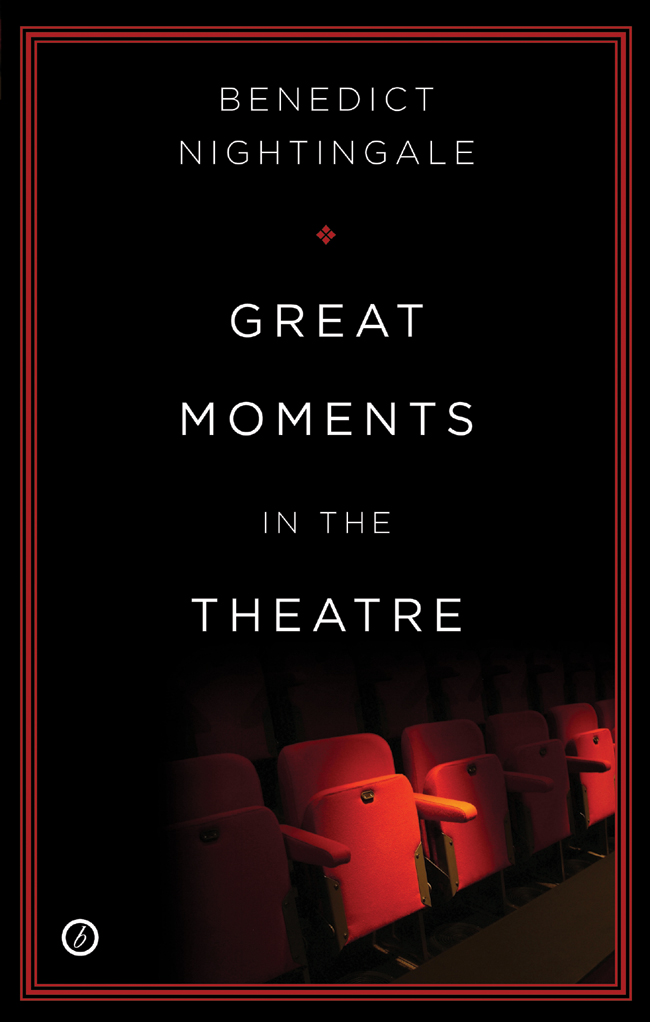GREAT MOMENTS IN THE THEATRE
Benedict Nightingale
GREAT MOMENTS IN THE THEATRE

OBERON BOOKS
LONDON
WWW.OBERONBOOKS.COM
First published in 2012 by Oberon Books Ltd
521 Caledonian Road, London N7 9RH
Tel: +44 (0) 20 7607 3637 / Fax: +44 (0) 20 7607 3629
e-mail:
www.oberonbooks.com
Copyright Benedict Nightingale, 2012
Benedict Nightingale is hereby identified as author of this work in accordance with section 77 of the Copyright, Designs and Patents Act 1988. The author has asserted his moral rights.
You may not copy, store, distribute, transmit, reproduce or otherwise make available this publication (or any part of it) in any form, or binding or by any means (print, electronic, digital, optical, mechanical, photocopying, recording or otherwise), without the prior written permission of the publisher. Any person who does any unauthorized act in relation to this publication may be liable to criminal prosecution and civil claims for damages.
A catalogue record for this book is available from the British Library.
PB ISBN: 978-1-84943-233-7
E ISBN: 978-1-84943-744-8
Cover design by James Illman
eBook conversion by CPI Group Ltd.
Visit www.oberonbooks.com to read more about all our books and to buy them. You will also find features, author interviews and news of any author events, and you can sign up for e-newsletters so that youre always first to hear about our new releases.
For Anne, with love
Many thanks to Tim Teeman, who commissioned the originals of many of these pieces when he was Arts Editor of The Times, and to Alex OConnell, who continued to publish them at a time when space was shrinking. Thanks also to James Hogan, who commissioned this book; George Spender, who edited it; to my agent, Christopher Sinclair-Stevenson; to my wife Anne, who did all the supporting; and to the many actors, writers, directors and musicians who made my career as a theatre critic a continuous joy.
CONTENTS
PREFACE
W hats meant by a great moment in theatre? In my book, and by my book I mean both my head and this volume, it embraces a variety of definitions. Great theatre can move you, exhilarate you, delight you with its wit, double you up with laughter, churn you, horrify you, deepen you, transport you and your imagination to other worlds, tell you fascinating things about your and others society, culture, history, drama and, indeed, theatre. It can even perform that exercise in intellectual pugilism so often invoked by high-minded professionals: challenge you. It can be excellent or unforgettably bad or strikingly in between. It can doubtless be cathartic, whatever that means, and very occasionally it can be magical, whatever that means.
But even if the cathartic arousing and/or purging of pity and terror is an elusive idea, the cause of endless debate in academia and endless confusion everywhere else, I know what magical is, at least for me. I felt it way back in 1964 when, as an apprentice critic for The Guardian, I was sent to a so-called theatre in Salford to review that great (oh no, that word again) British actress Barbara Jefford in a touring production of Racines Phdre.
I say so-called because the theatre was actually a shabby old cinema, with disintegrating seats and, somewhere at the back of quarter-filled stalls, a urinal which every few minutes flushed so loudly that an ugly whooshing noise carried through the audience and, no doubt, onto the stage. The place couldnt have been more unfriendly to classical drama if it had tried, and it was trying very hard. Yet Jefford and her anguished Phdre didnt merely blaze. Something strange and almost unworldly happened. There was a connection between actors and audience, stage and spectators, that went beyond a close or even intimate rapport. We were rapt. It was magical.
Ive not made that one of my great moments because the details of the production have evaporated. My review, which would anyway have been carried only in The Guardians northern editions, is dust. The theatre itself is probably now a small supermarket or a coffee bar, complete with loos that flush silently. But my book includes two other events that left me and, as far as I could tell, those around me feeling as if we were linked in some mysterious secular communion. One occurred in the 1990s at the National Theatre, one in the 1980s on Broadway, of all glitzy places. Oh yes, and perhaps theres yet another, also included here: the opening of a now-famous musical, this time at the Barbican in the 1980s. All helped to clinch my belief that the theatre has a potency and therefore an importance denied to any electronic medium.
Among other things, its a gymnasium in which we can rediscover and exercise that underused muscle, the imagination. By way of emphasising this, Ive included work that depends at least as much on visual invention as on words: Complicites Mnemonic, Robert Lepages Far Side of the Moon. But there obviously are also very many times, indeed the overwhelming majority of times, when the dramatists script and the actors words are dominant and you still leave feeling that your imagination has been creatively stretched.
Times, too, when you sense this happening even though you werent there. I witnessed many of the great moments in this book, and reviewed most of those, among them the world premiere of Harold Pinters Homecoming in Cardiff; but Im not old enough to have seen the first night of Shakespeares Hamlet or even those of Cowards Private Lives and Clifford Odetss Waiting for Lefty. To evoke David Garricks breathtaking Hamlet or Edmund Keans even more astonishing Shylock you have to rely on contemporary accounts of their acting. Fortunately, these are often long and precise, more so than today, when reviews are abundant but disappointingly short and therefore lacking in the detail you get from a Lichtenberg, whose letters and diaries analysed Garricks Hamlet. True, performances are sometimes televised or filmed, which is a help; but, as I indicate later, you have only to compare Laurence Oliviers Othello as it hammily materialised on celluloid with memories of the Olivier Othello that mesmerised theatre audiences to see how inadequate recordings are.
Here, I should probably offer some ritual apologies. There are unfortunate omissions in this book as well as what I believe to be defensible inclusions. Where are some of the major Europeans Schiller, Strindberg, Pirandello, Horvth, Drrenmatt, Frisch, Sartre and the Anouilh whose Poor Bitos thrilled me when I was a boy? Why have South America and Australia disappeared from the theatrical map? Wheres Asia, for Heavens sake? Where are English-language contemporaries Ive admired and enjoyed Mike Leigh, Steven Berkoff, Neil LaBute, and the Rowan Atkinson whose imitation of a man trying to stay awake in a church service showed me that the clich, rolling in the aisles, could be a literal truth? Wheres War Horse, with its pioneering puppetry? Wheres Congreves The Way of the World, Barkers Waste and Christopher Hamptons Tales from Hollywood, a play that, transposed to television, got a genuinely great performance from Alec Guinness as a distraught Heinrich Mann. Come to that, wheres Guinness?
Indeed, the habits of a near-lifetime as a reviewer impel me to raise still more critical doubts. Why the number of great moments that youll find in this volume? Id originally intended to include 100, though for no better reason than that it sounded as right as, say, Classic FM broadcasting its listeners 100 favourite tunes or a newspaper listing the 100 richest people in the world. Then I suddenly found Id slightly exceeded that supposedly magical or allegedly round number and, like someone making his will, didnt want to cut out any of my best beloved. So I stopped counting and suggest you do too. Anyway, who but a mathematical nerd can be bothered to count as far as 100, let alone beyond it?

